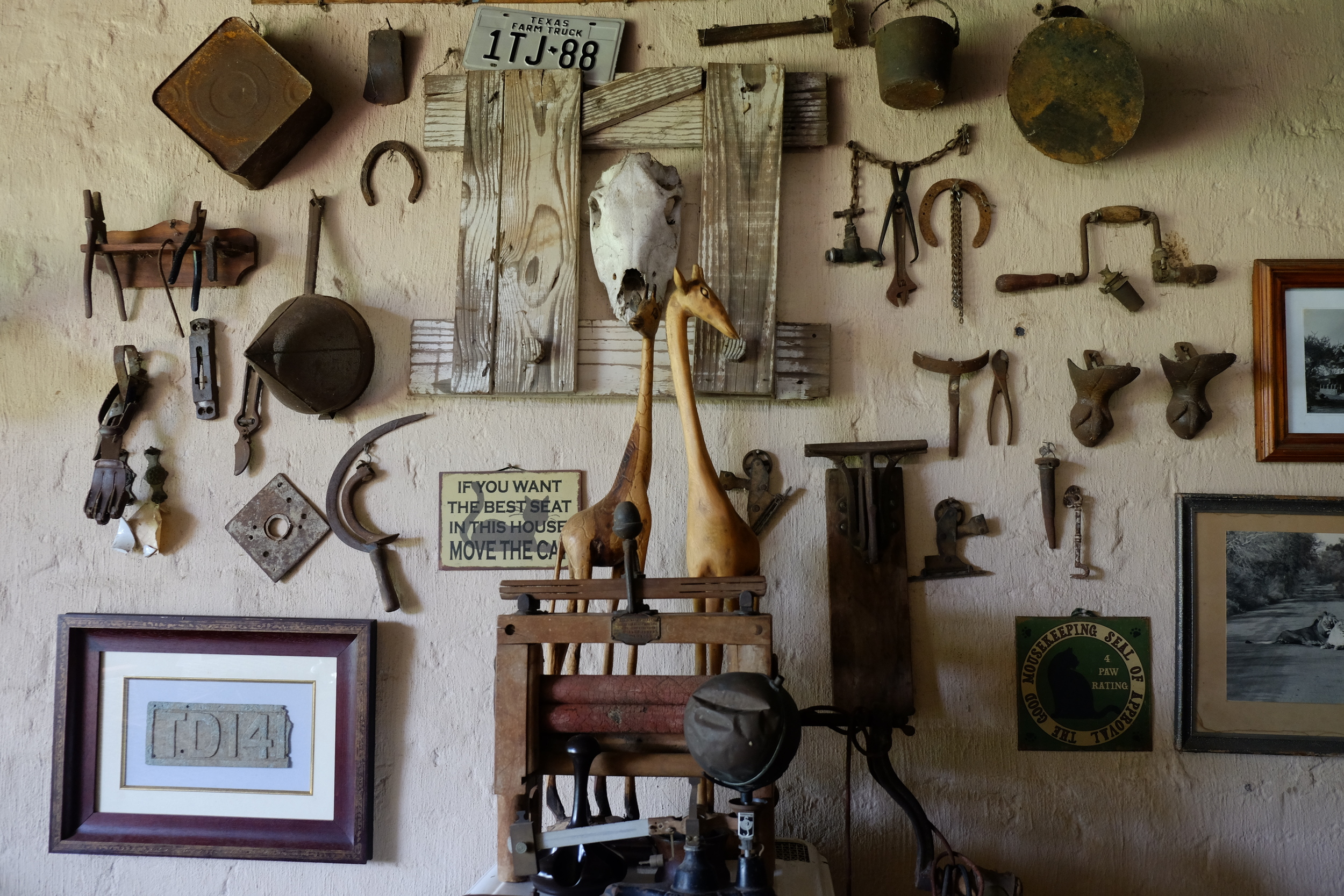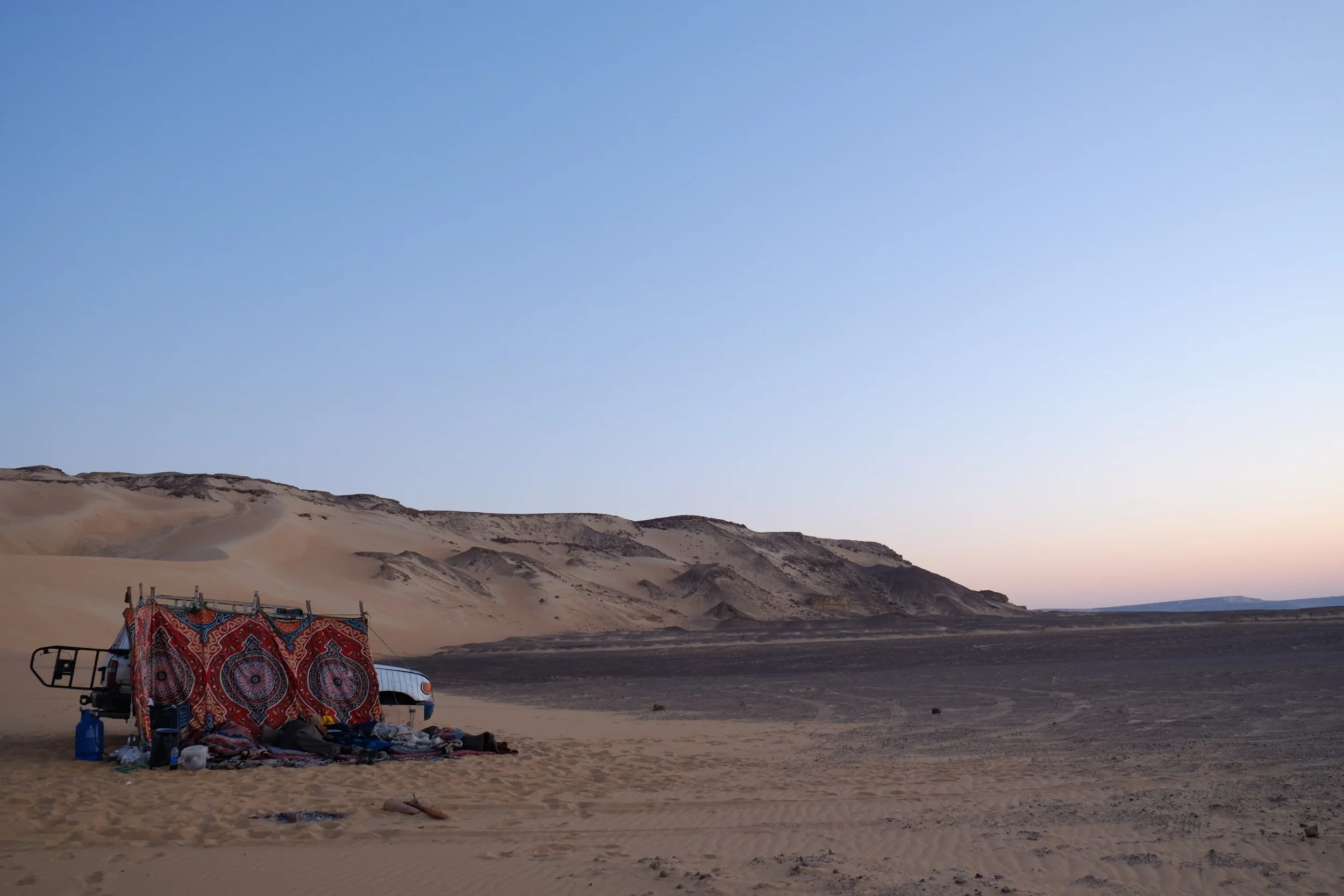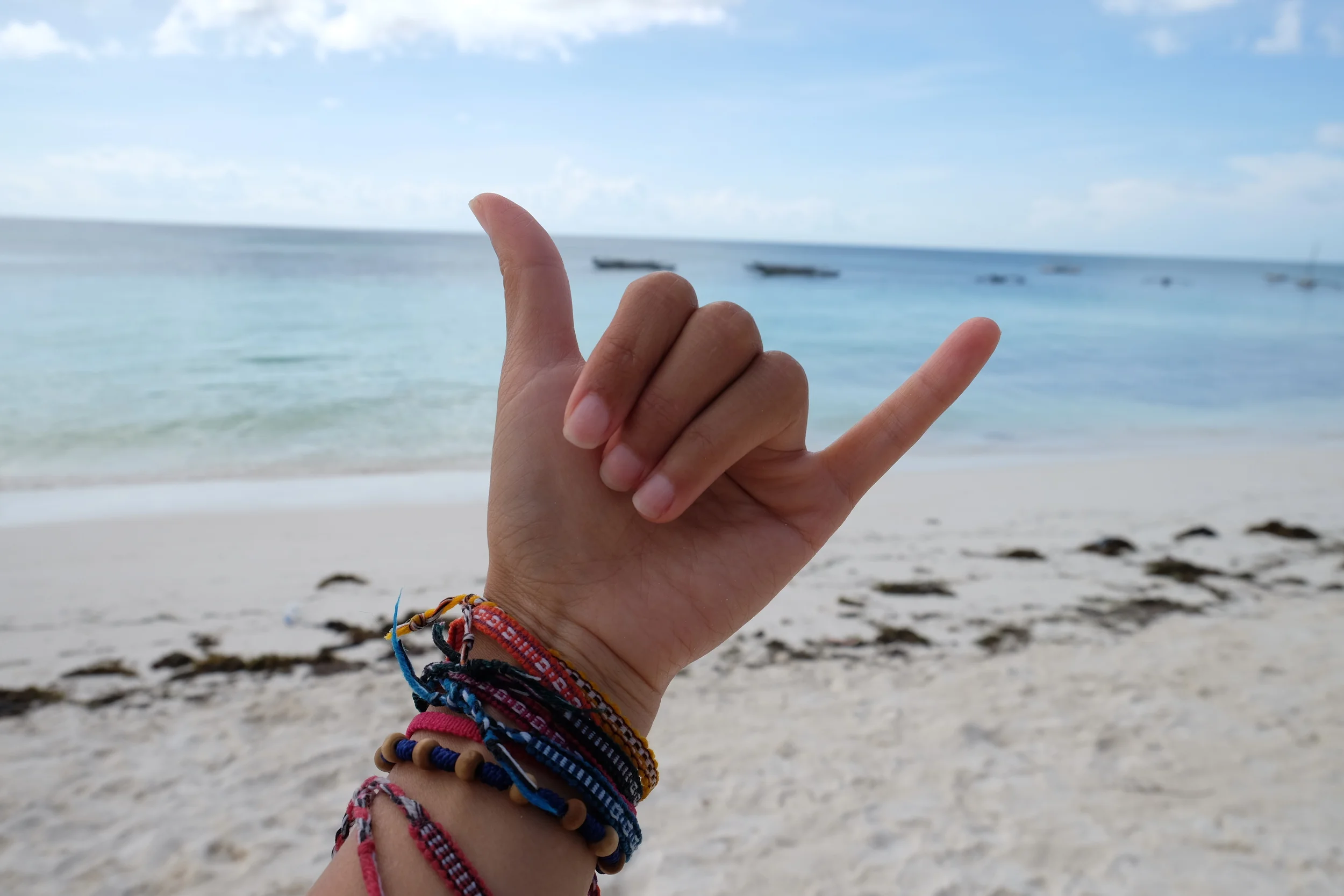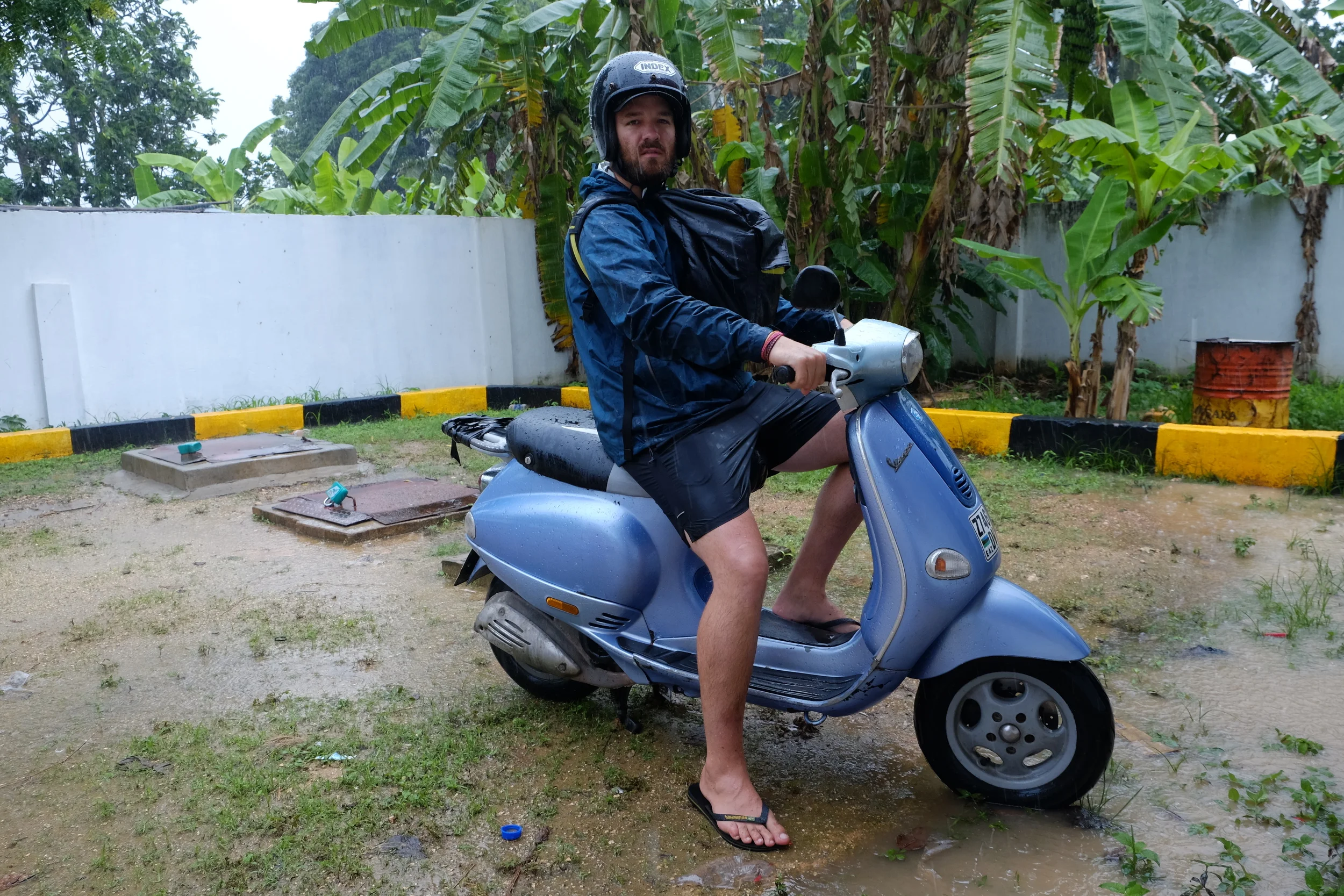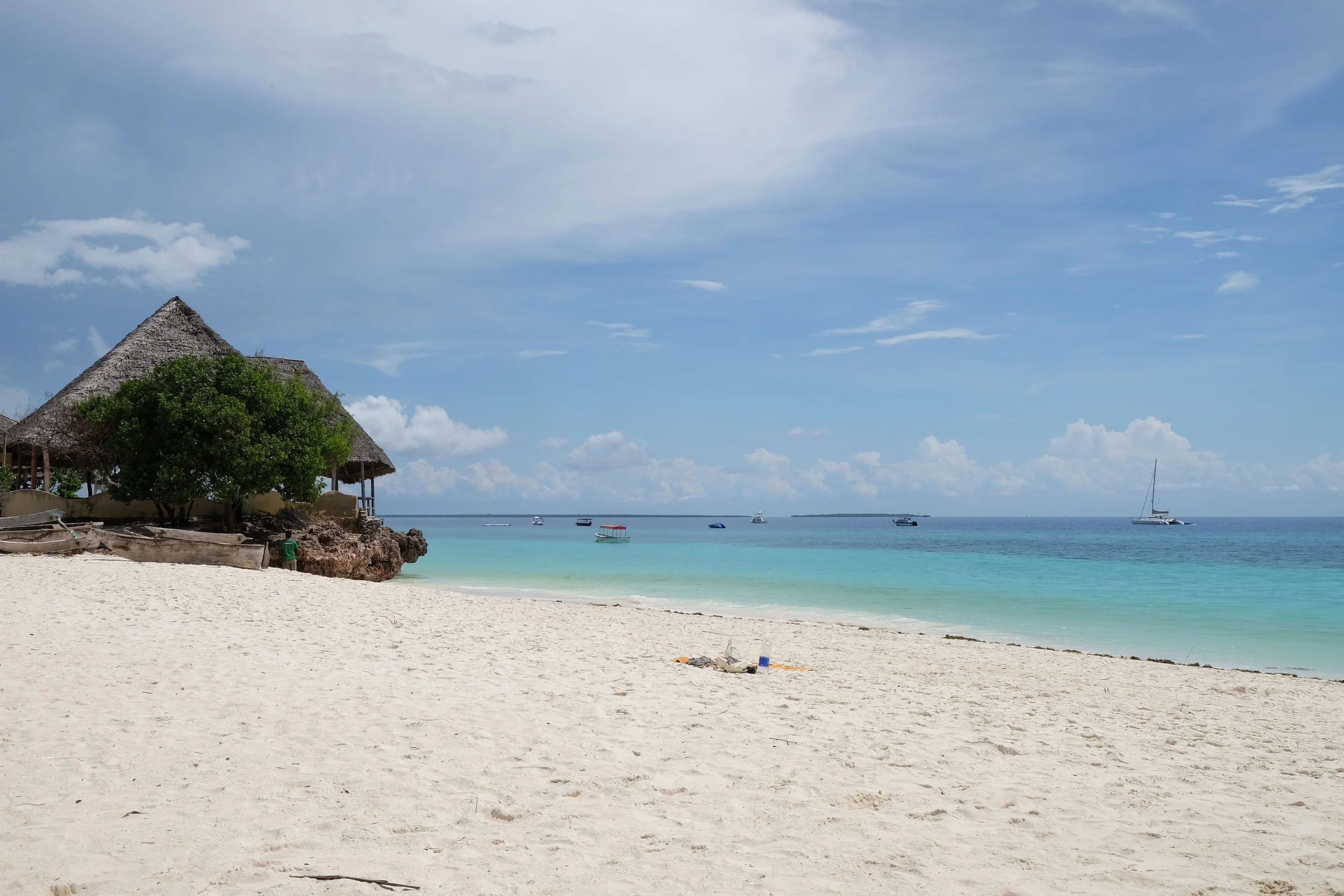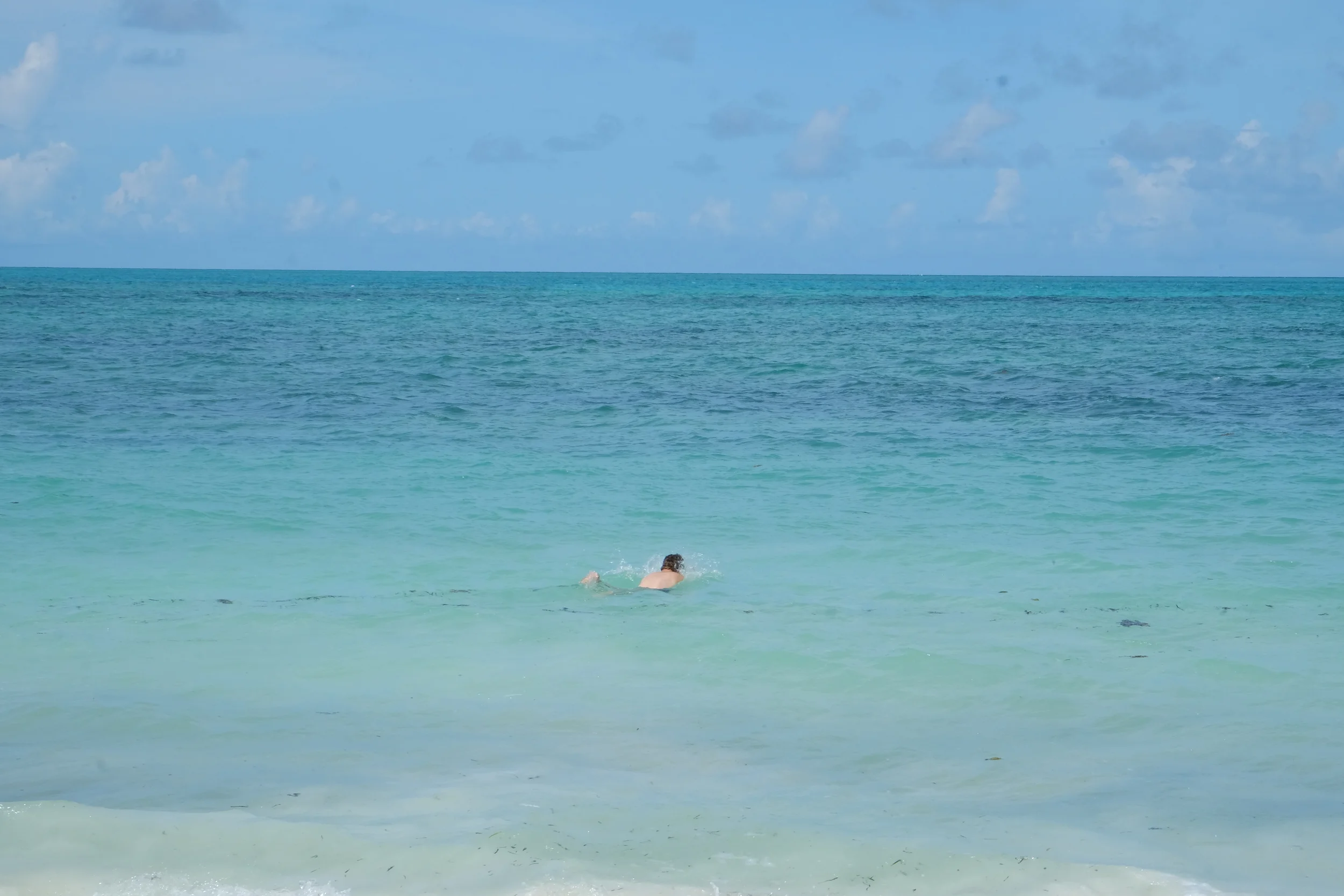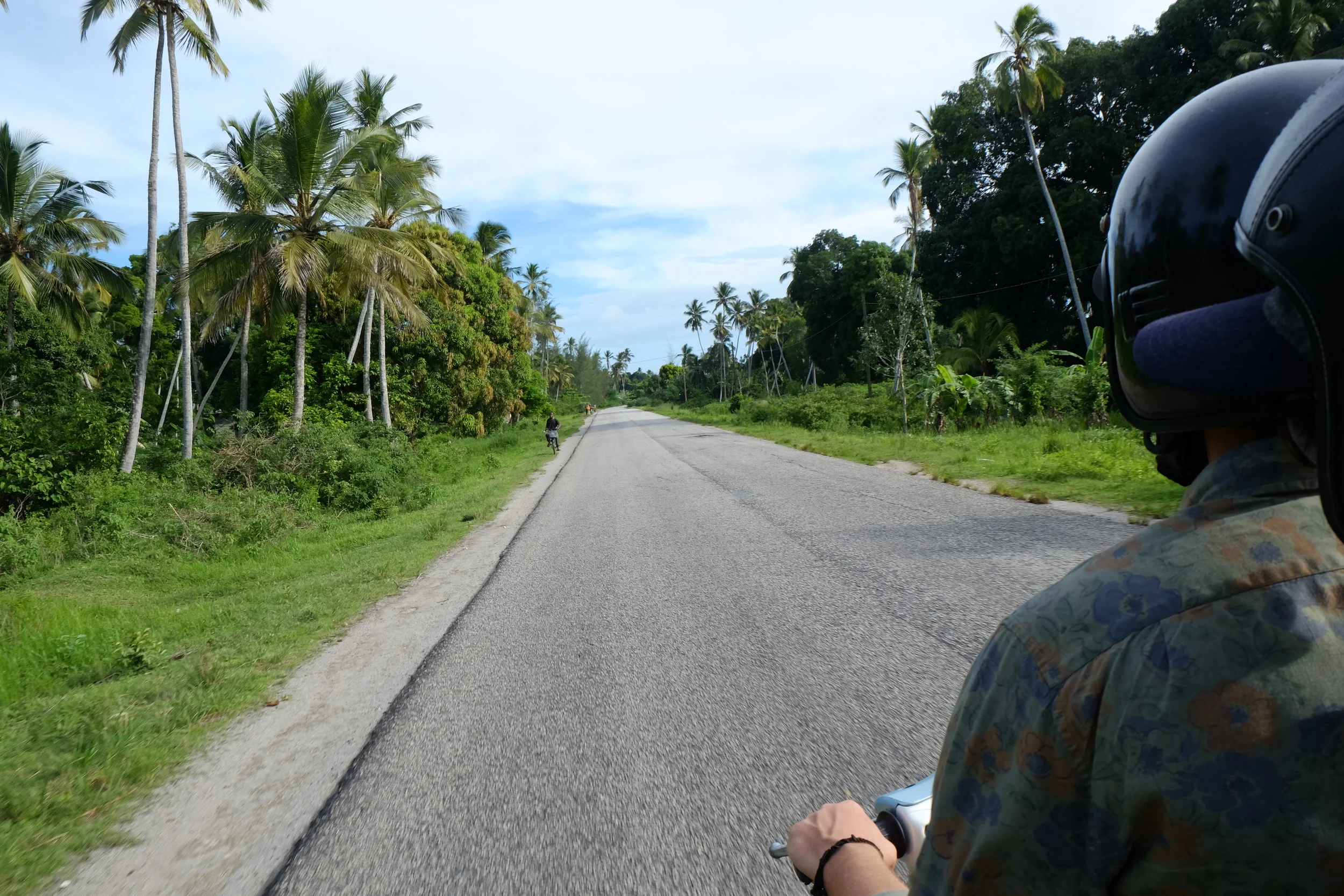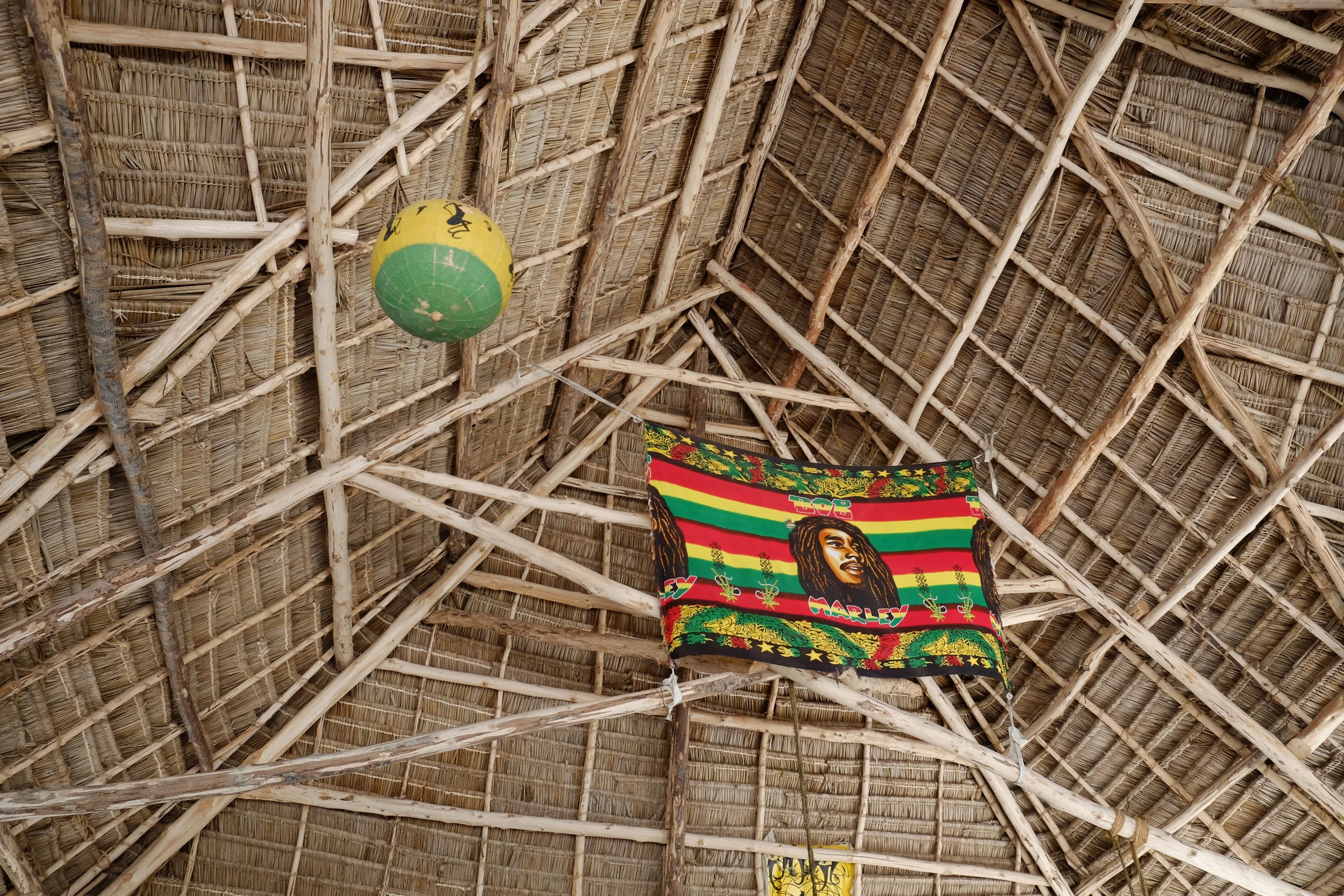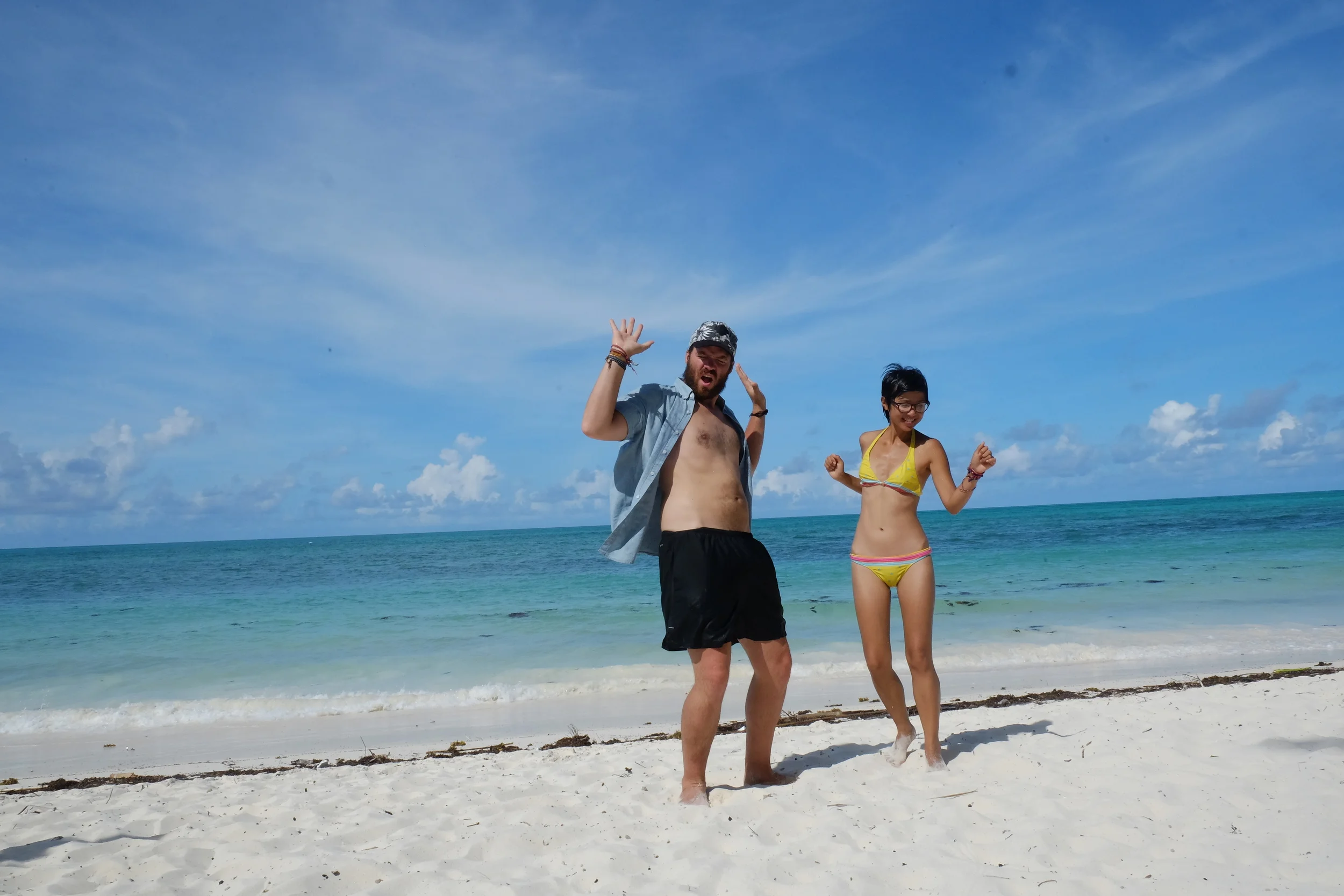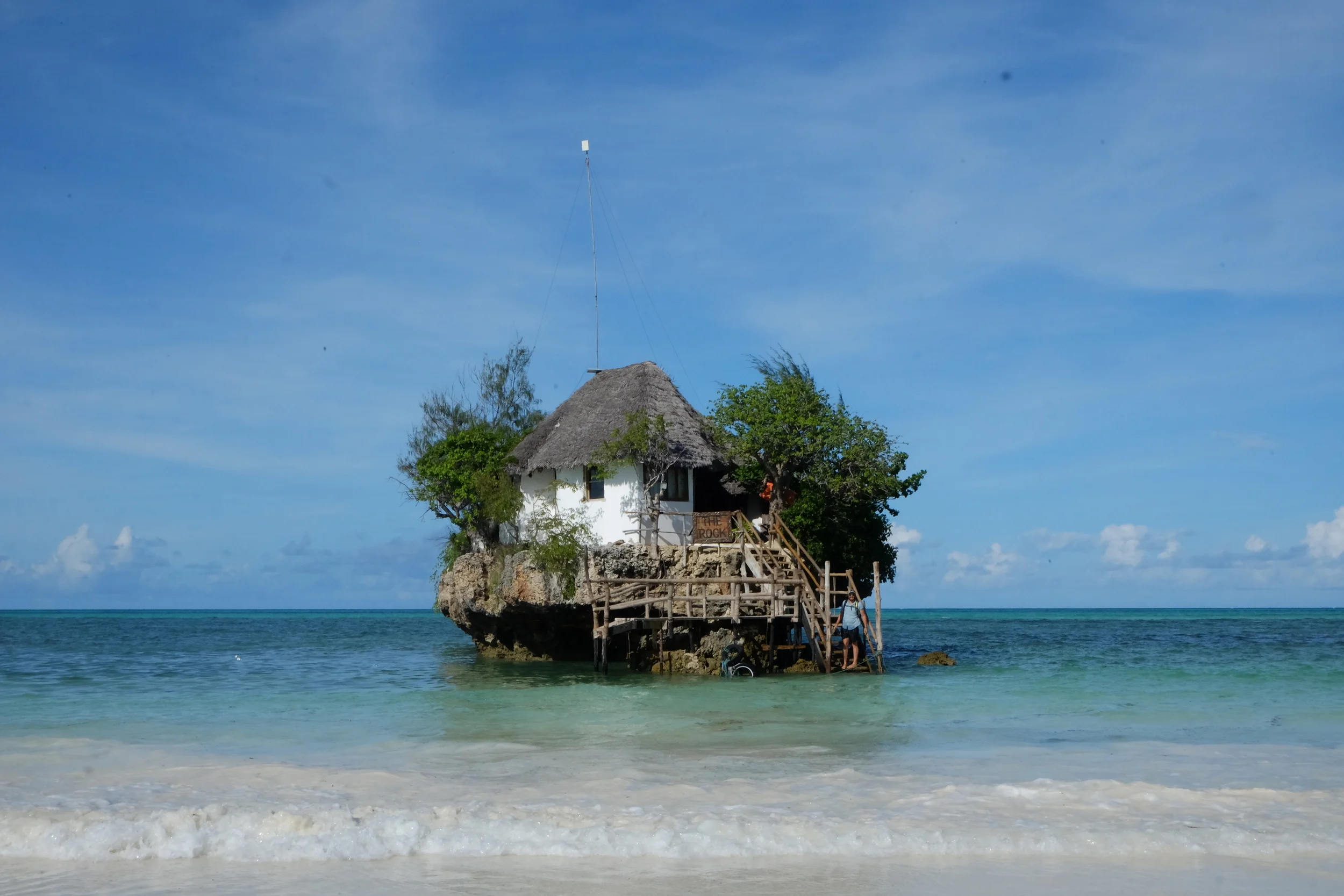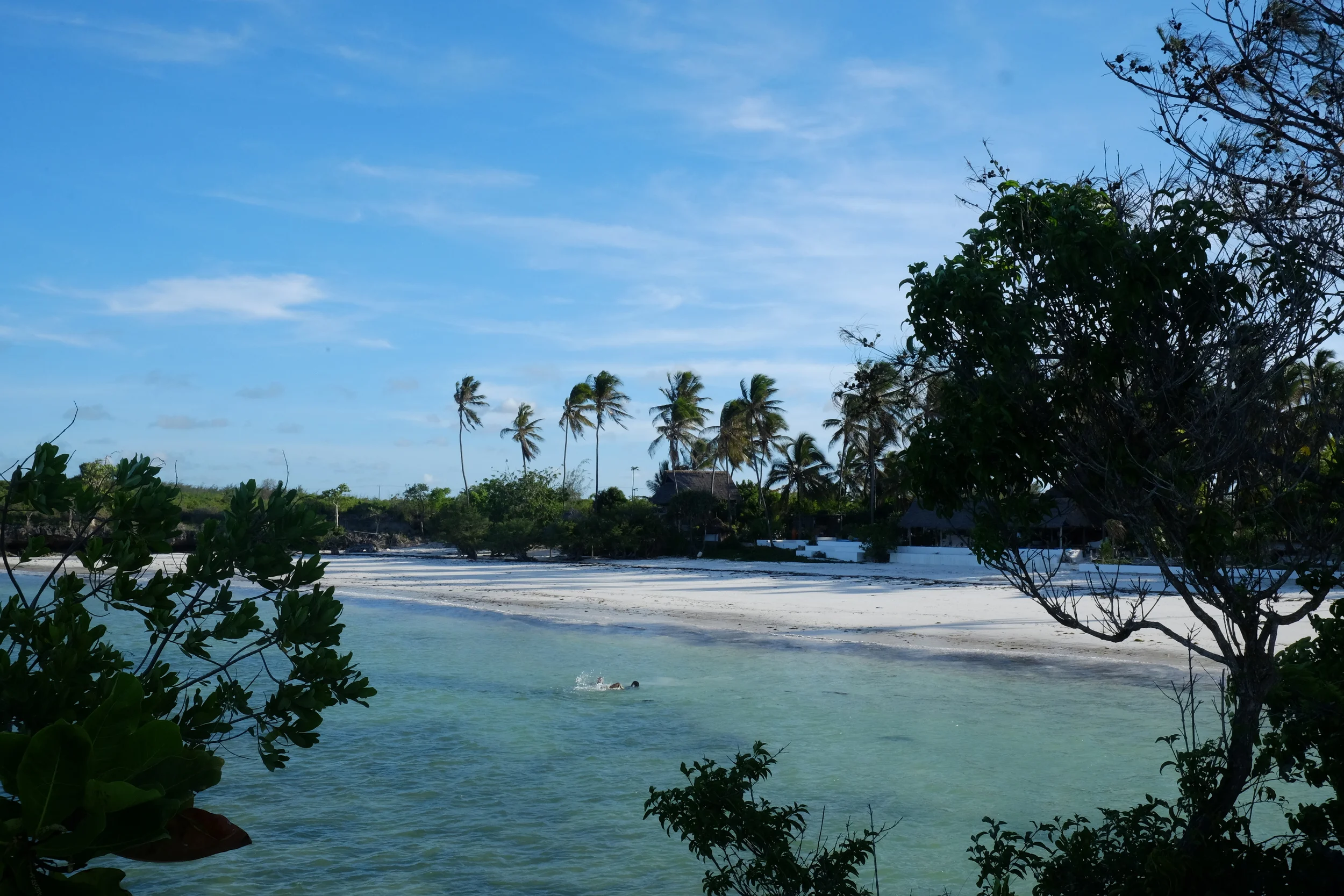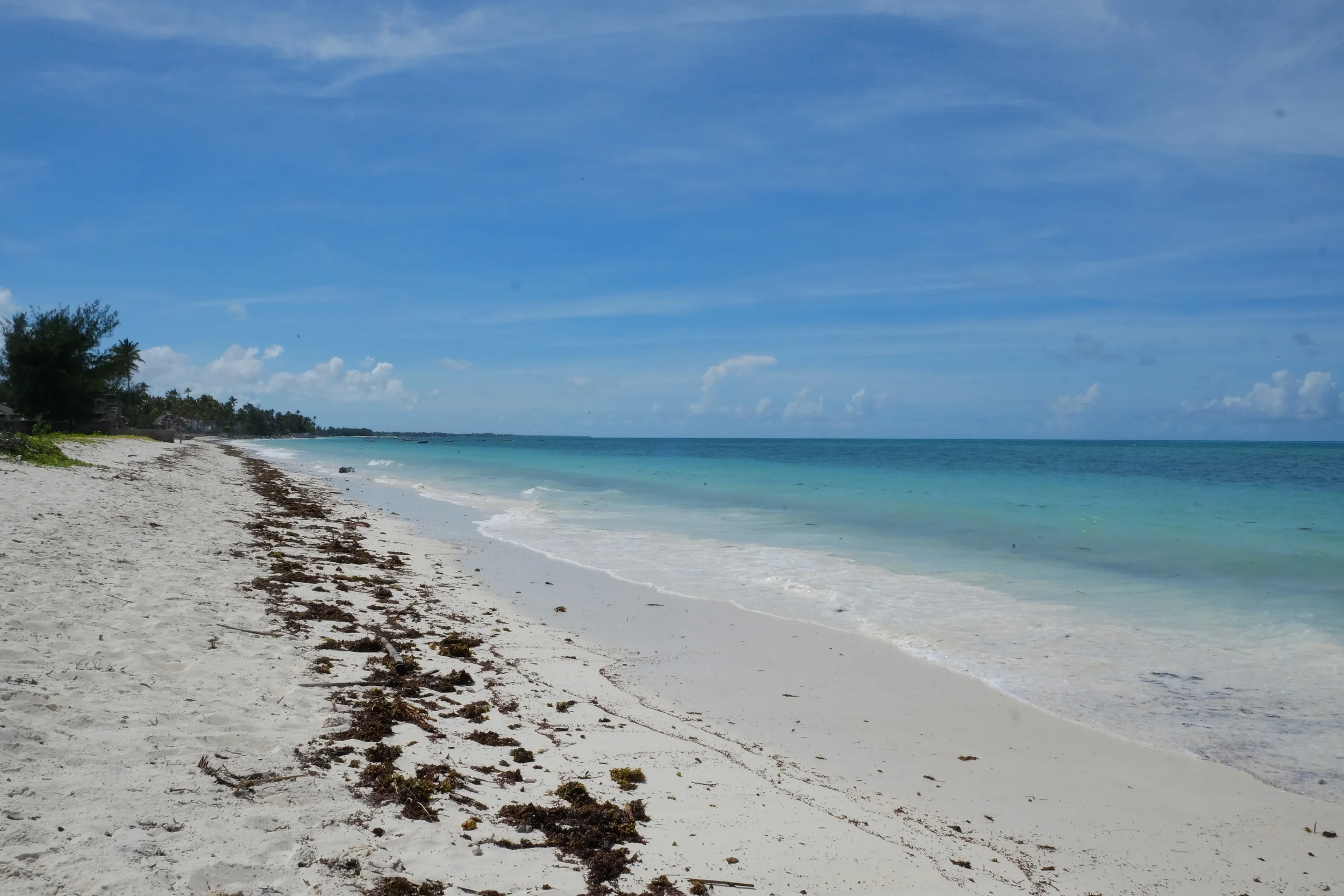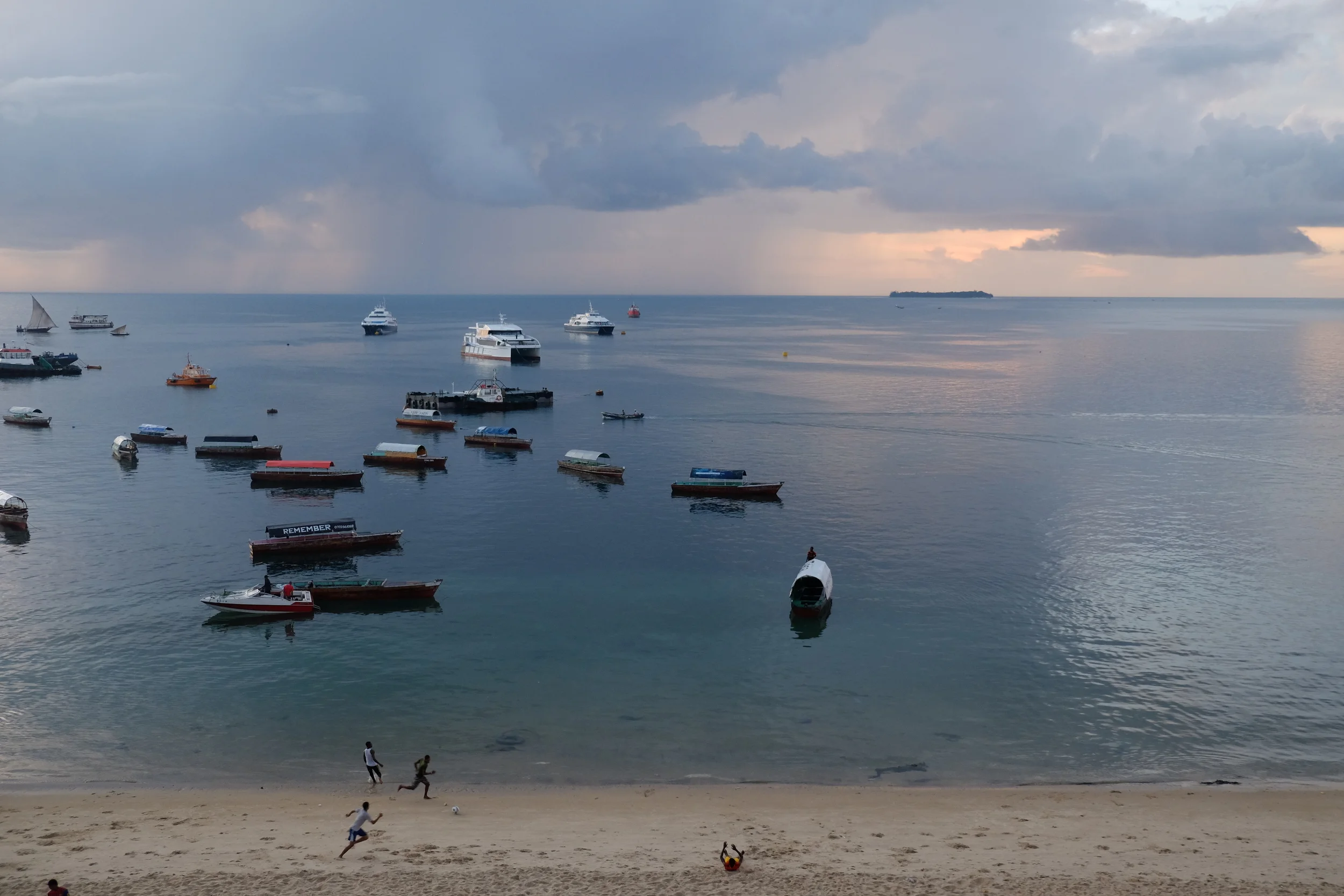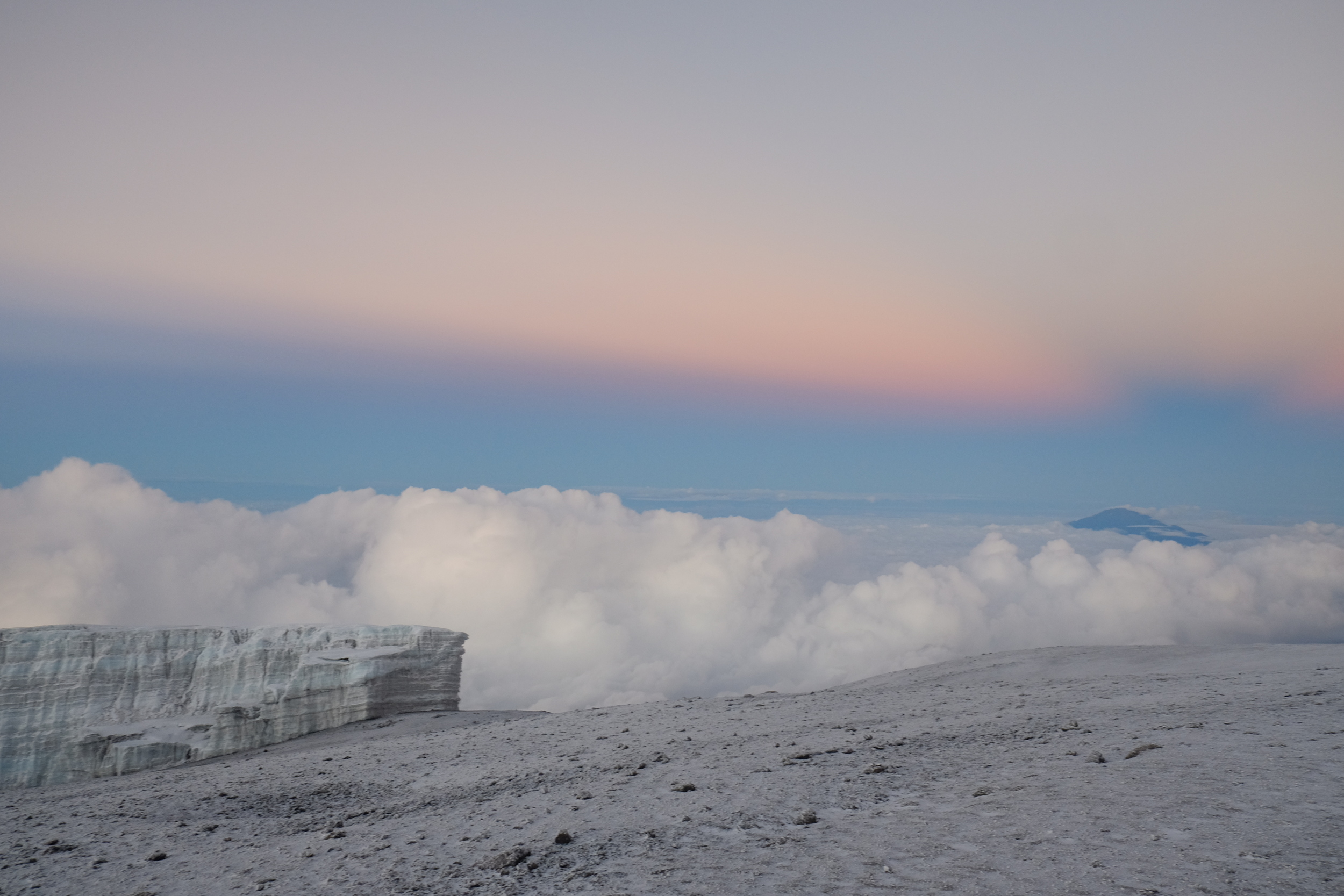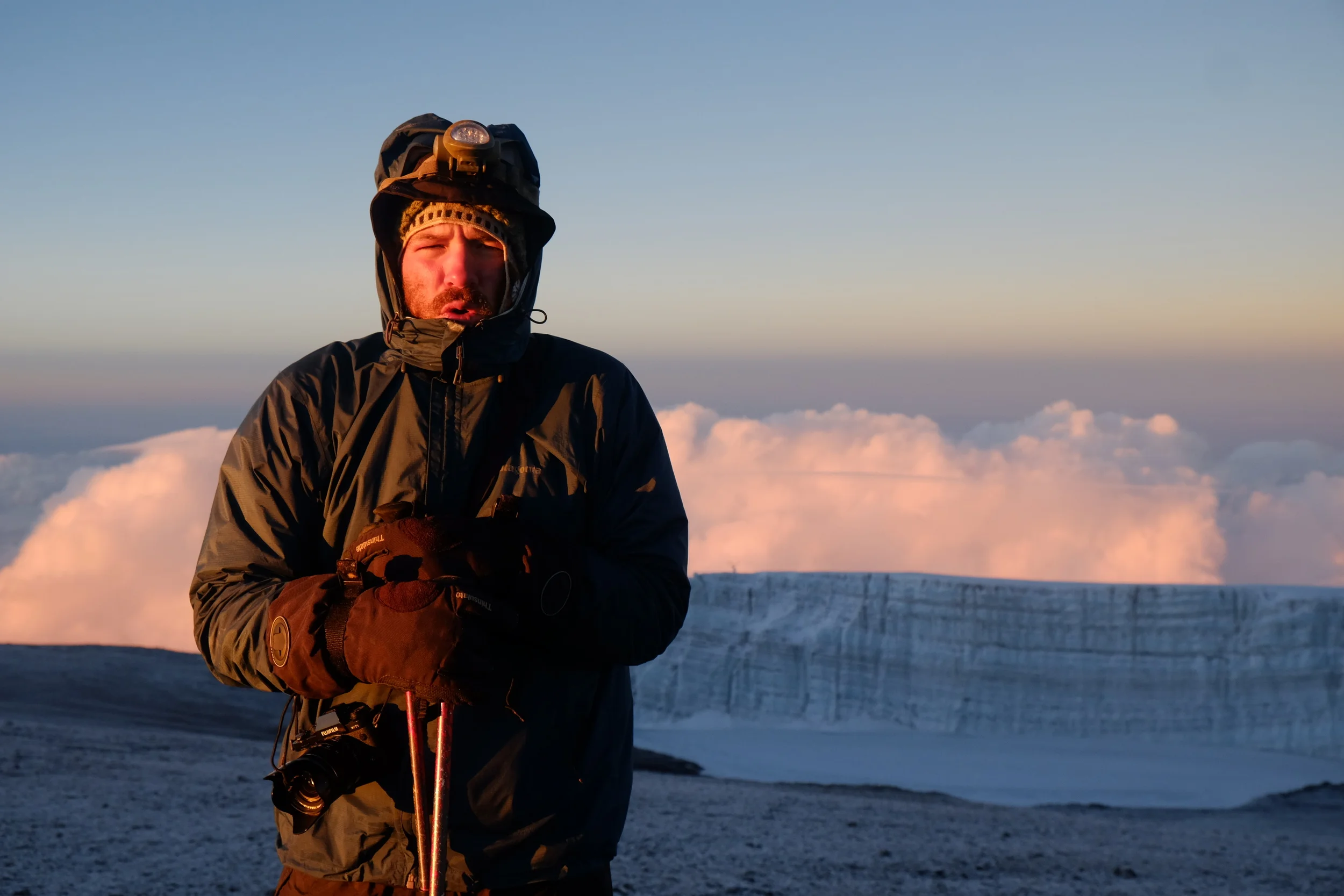About 2/3 of our stay in Africa was in our tent, whether it was out in nature or on a private lawn. The rest was in hotels and hostels, but there were also the more unconventional huts, riads, and Bedouin camps, some of which offered amazing views or beautiful details. Each place reminds me of the events and experiences that took place - how fortunate we are to live so fully. This post means we wrapped up our adventures in this part of the world. So many memories made, yet still so many more to follow.
HAKUNA MATATA
Zanzibar was the first place in a while where we would commit to spending a few days just hanging out and exploring. Its beautiful beaches was about the extent of our knowledge of this destination that people tend to escape to in this part of the world.
We splurged and stayed in a hotel right by the ferry with views overlooking the ocean. From our room, we could see ships coming and going, tourists hustling and bustling, fishermen taking inventory of their daily catch, then swimming off the day’s wear, and young locals playing football just as the sun was going down.
It was exactly the remedy we needed after having traveled such long distances.
Our first afternoon was spent getting lost in the labyrinth of alleyways that snake through the dilapidated Stone Town. Its age wears romantically on the façade of its stone buildings from which residents and shopkeepers call out 'mambo' to passersby. It’s a friendly greeting to which we learned to simply reply 'poa.'
The following morning, we rented a scooter to explore the northern reaches of the island, a beach called Nungwi. Worthy of the Four Seasons, it's where the sand is white and the water is crystal clear. In our almost empty scooter, we set off, first stopping at 4 different service stations before finding one with petrol. Fuel gauge finally on full, we continued north on a road lined with palms and lush vegetation, sputtering our way to paradise. Overhead, gray clouds loomed, but stubbornly, we forged ahead. By the time we arrived at Nungwi, we had been poured down from up above and splashed up from down below. In paradise, though, the weather was absolutely perfect. We took a dip in the refreshing, warm water of the Indian Ocean and at our fingertips, we could feel dozens of jellyfish floating around. When tiny ones began to attack, we retreated to shore and laid out like washed up castaways.
On the third day, we ventured east on our little scooter that could. Wind in our hair, not a gray cloud in sight, we were jammin’. We stopped at a cottage at Jambiani Beach for some cold drinks, enjoyed alongside the company of the owner, a rasta from Italy as she called herself. We splished and splashed in the practically private beach, then continued north along the coast. Our scooter was running on fumes, but we persisted onward, reaching The Rock, an upscale cafe restaurant in the ocean, reachable only by boat when the tide is high. There we soaked in more of the sun, satisfied with our time spent on the island.
As if too good to be true, a series of mishaps began to unfold back at our scooter. There wasn’t a single fume left. With the help of a local, we were able to have 2 liters of petrol hand delivered to us, but not 10 minutes back on the road, we were broken down again. Many locals stopped to help and after some troubleshooting, the problem was localized to the fuel pump. It was malfunctioning and without replacing the part, we could travel only a few hundred meters before breaking down again. If we somehow miraculously fixed it on the spot, service stations were beginning to close anyway and we didn't have enough petrol to get back to the other side of the island. As night fell, we felt vulnerable and when a local insisted we stay overnight at his place in his village and refused to discuss payment until the morning, we panicked. Even locals were untrusting of fellow locals. Fortunately, the silver lining to being stranded on the side of the road in Zanzibar is that anybody who is curious stops to take a peek and there isn’t anyone who isn’t curious, including taxi drivers with big vans that could fit 2 passengers and a scooter. Three hours into our plight, we finally made it back safe and sound to the hotel and still in enough time to indulge in the best wood-fired pizza in all of Africa.
In spite of the setbacks, we were surprised to find that we still had a skip in our step at the end of the night. Without even knowing it, the light-hearted, easy-going spirit of the people of Tanzania had seeped into our skin.
POLE, POLE
Pole, pole is the mantra here on Kili, as the locals affectionately call the mountain that looms over their little town of Moshi. Slow and steady. In the weeks leading up to this point, there was some indecision around whether we should attempt climbing this monster, feeling out of shape from not having done much hiking since South America. A simple climb up a few flights of stairs would be enough to take the wind out of me. What would a 4,000-meter ascent do?
With an impressive crew of 8 guys, we shut our eyes and set off. The first couple of days were a test of patience. Despite having hiked 19 kilometers up 1,800 meters, we actually felt strong. We felt we could've done more and faster, but were constantly reminded to slow our pace to a steady one. Altitude sickness is real and not unheard of. In fact, a guy we met on the way up had to go back down when his headache and shortness of breath would not subside.
The third day was filled with mixed emotions as we trekked the long, rolling stretch of moorlands and desert to base camp. After 9 kilometers up 1,000 meters and very little rest, we would ascend at midnight that night and attempt to summit in time to catch the sunrise. Such eagerness and anxiety in those few hours.
Day 4 was a test of willpower. The climb up began just 20 minutes after midnight and no matter how slowly we went, it wasn't slow enough. We were to climb 1,200 meters over 6 kilometers and at our pace, it seemed as though we would never make it. The air is thinner and breathing becomes more labored at this elevation. Stopping to rest meant defying the freezing temperatures for longer and the more time spent on the face of the mountain, the more discouraging.
Ten minutes from the peak, the sun began to make its appearance and determination surged from within. We raced to the top, our frozen fingers fumbling for our cameras.
Standing above the clouds, everything was forgotten. Senses became numb. There was no sound. We were literally breathless. As we waited to greet the sun, we could only stand back in awe, hearts filled to the brim. Wisps of cloud danced before us as if the opening sequence to one of nature's most incredibly orchestrated symphonies. No words could even begin to describe.
The last day was a test of endurance. Raw fingers, sore muscles, aching joints, blistered feet, 19 kilometers.
Back in town, we already start to reminisce. How easy it would have been to turn around at any point and how amazing the human body is to persevere. Just a few days on the mountain, but a life lesson learned. Mind over matter. Pole, pole.



